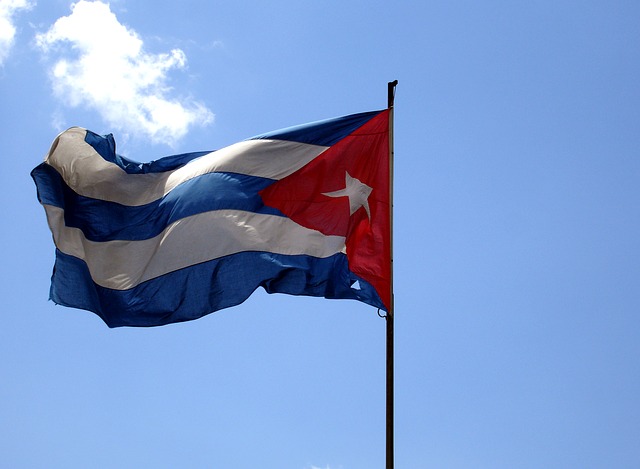The Obama administration reestablished diplomatic relations with Cuba in December 2014. Less than a month later, it put new rules into place for easing travel and trade restrictions with the island’s Communist government.
Americans will now be able to travel to Cuba—albeit with restrictions—and bring back with them up to $400 in Cuban goods, including $100 worth of alcohol and tobacco. This is certainly a great move for those who have hungered for a never ending supply of Cuban cigars since 1960 when the U.S. clamped an embargo on the island. That was fifty-five years ago, a long time for the two neighboring countries to keep each other at bay, both economically and politically.
The embargo has been touted as the longest lasting bi-partnership ever seen in Washington, one that was upheld and extended by 11 presidential administrations – six Republican and five Democratic.
And now, decades after the end of the Cold War, the American-Cuban self-imposed separation is coming to an end and despite President Obama’s use of executive authority to achieve a policy goal without involving Congress, the new diplomatic move may go down in the books as Obama’s one successful foreign initiative.
Travel
The two main areas to be liberated first as a result of this agreement are travel and trade. Although there have been charted flights from Florida to Cuba for years, the restriction on commercial U.S. airlines will be removed and planes will be allowed to fly scheduled routes to Cuba without requiring a special license for the first time in decades.
Up until now, tourist travel to Cuba was permitted for specific visitors and permission granted to those falling under twelve different categories. With the new easing, most U.S. citizens and those under U.S. jurisdiction wishing to visit Cuba can do so without the necessary license. Still, most U.S. travelers to Cuba will, at first, probably be family members, educators, cultural ambassadors, medical personnel and the media.
The new rules also remove all limitations on how much money a traveler can spend per day when visiting the island. In a more dramatic move, American banks can now do business with Cuban customers without brokering through a third nation. So sending money home to family members on the island will be far easier. There are no restrictions on how much Cuban relatives can send and non-Cuban Americans will be allowed to send up to $8,000 a year to any Cuban national. Once in Cuba, U.S. citizens will be able to use their credit cards to pay for purchases and services.
All this is a great start to some sort of mutual economic relationship between the two countries and is sure to have a broader effect throughout the world. Although the United States has a diplomatic office within the Swiss Embassy in Havana called an 'Interests Section' and Cuba has a similar office within the Swiss Embassy in Washington, D.C. , new economic initiatives will be required on the part of both governments.
According to Treasure Secretary Jack Lew, “Cuba has real potential for economic growth and by increasing travel, commerce, communications, and private business development between the United States and Cuba, the United States can help the Cuban people determine their own future.”
Trade
Trade is synonymous with economic growth. The introduction of substantial U.S. Cuba trade agreements can have a real boost on the economies of both countries.
Cuba’s main exports are tobacco and raw sugar. Raw sugar accounts for one-quarter of Cuba’s exports, valued at less than half a billion dollars, not a very substantial number in absolute terms. “Rolled tobacco” is fourth on their list of exports and distilled spirits of all kinds including rum amount to less than one-tenth of all products sent out of the country.
The top market for those exports is currently China, Cuba’s erstwhile Communist partner. The U.S. economy is booming at the moment and efforts to step into these markets with a bang should not be difficult. In return for the rum and cigars, Cuba can import refined petroleum, something the United States seems to have an abundance of. Since agricultural products are at a minimum in Cuba, Havana can import other foodstuffs such as wheat, corn, meat, milk, and soybeans.
As the new regulations go into effect, certain trade restrictions are still on the books and it will take some time for them to be gradually eliminated. At the same time, currency constraints will have to be revisited and what effect the strengthening of the Cuban Peso (Cup)will have on the U.S. Dollar. The Cup currently stands at 0.0377358 USD.
In the meantime, another area that needs immediate attention is Cuba’s communication infrastructure. New telecommunications networks are needed in order to give Cubans greater access to the Internet and this is not a short term project. Cuba already has Internet access on a state-run site called Cubadebate but it is limited. Government officials have indicated that their goal is to expand Web access on the island as quickly and inexpensively as possible as new investments are made. No additional specifics were given.
Both Cuba and the U.S. certainly have much to gain from this new development but it will take time to unravel decades of distrust and hostility. A great deal of confidence is required but when it does happen, it should have a dramatic effect on both nations and across the globe.


